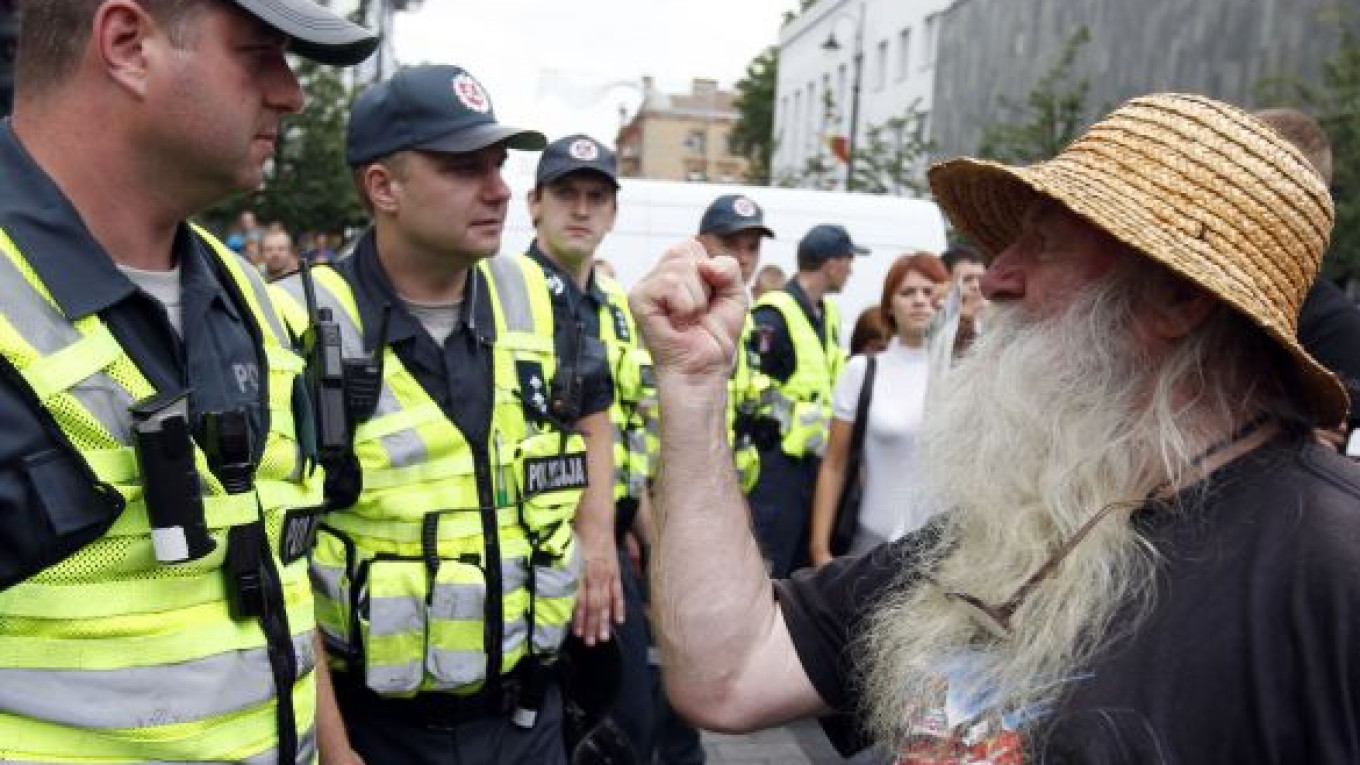Amid a surge of anti-gay violence and repression in Russia and several other countries, the United Nations' human rights office has launched its first global outreach campaign to promote tolerance and greater equality for lesbians, gays, transgender people and bisexuals.
Called Free & Equal, it's an unprecedented effort by the Office of the UN High Commissioner for Human Rights to change public attitudes around the world on issues that have bitterly divided the UN's own member states.
The multi-pronged campaign — announced Friday at a news conference in Cape Town, South Africa — will include videos and public-service announcements distributed through social media, a new website, a series of fact sheets and engagement by celebrities well-known in different regions of the world.
"Changing attitudes is never easy. … It begins with often difficult conversations," said Navi Pillay, the high commissioner for human rights. "And that is what we want to do with this campaign. Free & Equal will inspire millions of conversations among people around the world and across the ideological spectrum."
There were multiple reasons for choosing South Africa as the news conference venue. It is Pillay's home country and is a leading nation on a continent where discrimination and violence against LGBT people is widespread.
In Cameroon, for example, two men were sentenced to prison last week for gay sex, and a gay rights activist was tortured and killed earlier this month in an attack his friends suspect was related to his activism. South Africa, in contrast, does not criminalize homosexuality and allows same-sex marriage, yet is plagued by extensive anti-gay violence, including frequent rapes of lesbians.
However, the new awareness campaign will extend worldwide, reflecting the challenges faced by gays in many countries.
In Russia, President Vladimir Putin recently signed a law that will impose hefty fines for holding gay pride rallies or providing information about the gay community to minors. In Haiti, gay-rights leaders say their community has been targeted by a recent series of threats. In Montenegro, several hundred people on Wednesday attacked the Balkan nation's first-ever gay pride rally, throwing rocks and bottles at activists while some yelled, "Kill the gays."
Meanwhile, a group of protesters tried to disrupt Lithuania's second gay pride parade ever on Saturday, defying an enormous police presence by throwing eggs at marchers and attempting to storm a stage.
Several hundred gay rights activists took to the grand main street of Vilnius to show their pride, waving Lithuanian and rainbow-colored flags, with some standing on top of buses decked out in colorful balloons.
They were met by hundreds of unruly protesters, 28 of whom were detained, police said. Among them was Petras Grazulis, an anti-gay lawmaker who rallied protesters with a bullhorn. He was thrown face-down on the ground and carried off in handcuffs by police, though the lawmaker soon reappeared at the protest after being released from police custody.
A Message from The Moscow Times:
Dear readers,
We are facing unprecedented challenges. Russia's Prosecutor General's Office has designated The Moscow Times as an "undesirable" organization, criminalizing our work and putting our staff at risk of prosecution. This follows our earlier unjust labeling as a "foreign agent."
These actions are direct attempts to silence independent journalism in Russia. The authorities claim our work "discredits the decisions of the Russian leadership." We see things differently: we strive to provide accurate, unbiased reporting on Russia.
We, the journalists of The Moscow Times, refuse to be silenced. But to continue our work, we need your help.
Your support, no matter how small, makes a world of difference. If you can, please support us monthly starting from just $2. It's quick to set up, and every contribution makes a significant impact.
By supporting The Moscow Times, you're defending open, independent journalism in the face of repression. Thank you for standing with us.
Remind me later.


